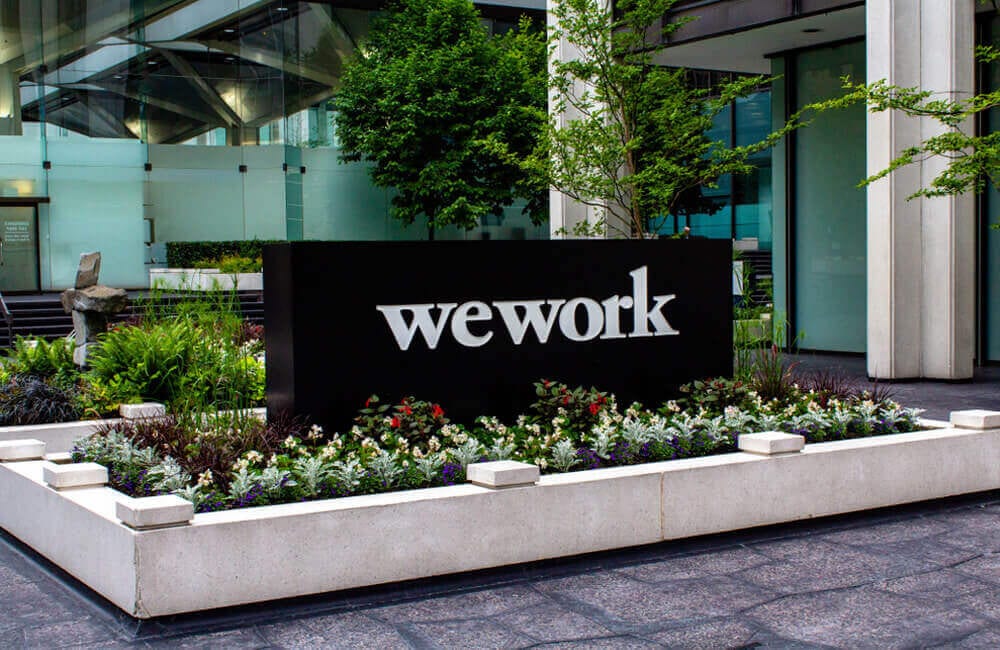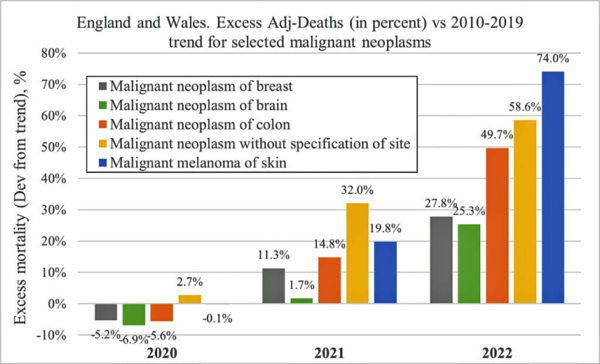WeWork files for BANKRUPTCY, prepares to dump 40 NYC office tower leases
11/13/2023 / By Ethan Huff

WeWork, the largest private office lessee in Manhattan, has collapsed into bankruptcy after reaching an astounding $47 billion valuation in 2019 just prior to the Wuhan coronavirus (COVID-19) “pandemic.”
Ever since COVID killed the flexible office industry, WeWork has been spiraling downward.
“Dormant locations in New York dominate a list of nearly 70 leases the coworking giant intends to terminate,” reported Bloomberg, citing court papers.
“The roughly 40 contracts at issue include space near Union Square and in Fulton Center, a retail and transit facility in downtown Manhattan.”
All of these leases are considered “limited to no benefit” to the company and are predominantly dormant space at the current time.
Since the commercial real estate (CRE) market is already in trouble, WeWork’s scrapping of all these New York City office tower leases is sure to have a ripple effect throughout the Big Apple and the economy at large.
Up until now, WeWork has been an anchor tenant for numerous buildings in New York City, accounting for about $2.6 billion in commercial mortgage-backed securities (CMBS) debt, with about half of these loans set to reach maturity in the next 12 months.
About 80 percent of the landlords involved are currently on a special servicing watchlist, are delinquent on their loans, or are in default, according to the CMBS data firm Trepp.
Commercial real estate crisis is only just beginning, warns realty company CEO
The collapse of WeWork is accompanied by the termination of dozens of leases, which will place even more strain on building owners who are facing tightening borrowing conditions.
In June 2022, WeWork rented nearly 20 million square feet of office space across the United States. This means that what is currently taking place in New York City will absolutely spread across the country.
According to RXR Realty Chairman and CEO Scott Rechler, the CRE crisis is only just getting started.
Almost exactly two years after going public via SPAC, WeWork filed for Chapter 11 bankruptcy protection in New Jersey federal court. The company spent its entire existence burning large amounts of cash raised from investors.
Across 22 rounds, most of it coming from SoftBank and SoftBank’s Vision fund, WeWork raised, and burned, $13.8 billion.
The company announced in a press release that it reached a “Restructuring Support Agreement” with creditors to “drastically” reduce the company’s “existing funded debt and expedite the restructuring process.”
Since WeWork operates in other countries as well, it is important to clarify that the bankruptcy only applies to the company’s locations in the U.S. and Canada.
WeWork’s total liabilities range anywhere from $10 billion to $50 billion, we are told – a truly astounding figure range.
“Now is the time for us to pull the future forward by aggressively addressing our legacy leases and dramatically improving our balance sheet,” said WeWork CEO David Tolley.
“I am deeply grateful for the support of our financial stakeholders as we work together to strengthen our capital structure and expedite this process through the Restructuring Support Agreement.”
Prior to filing for bankruptcy, WeWork gave many hints that it was in trouble. Back in August, for instance, the company stated in a 10-Q filing that “substantial doubt exists about the company’s ability to continue as a going concern.”
Then in September, Tolley announced that WeWork “would seek to negotiate terms with our landlords,” adding that as “part of these negotiations, we expect to exit unfit and underperforming locations and to reinvest in our strongest assets as we continuously improve our product.”
Right now, WeWork leases more square feet of office space than any other company in the United States.
How much longer will the U.S. economy last? Learn more at Collapse.news.
Sources for this article include:
Submit a correction >>
Tagged Under:
bankruptcy, Collapse, debt bomb, economic riot, finance riot, Inflation, office space, pensions, Real Estate, real estate collapse, risk, WeWork
This article may contain statements that reflect the opinion of the author
RECENT NEWS & ARTICLES
COPYRIGHT © 2017 COLLAPSE.NEWS
All content posted on this site is protected under Free Speech. Collapse.news is not responsible for content written by contributing authors. The information on this site is provided for educational and entertainment purposes only. It is not intended as a substitute for professional advice of any kind. Collapse.news assumes no responsibility for the use or misuse of this material. All trademarks, registered trademarks and service marks mentioned on this site are the property of their respective owners.





















